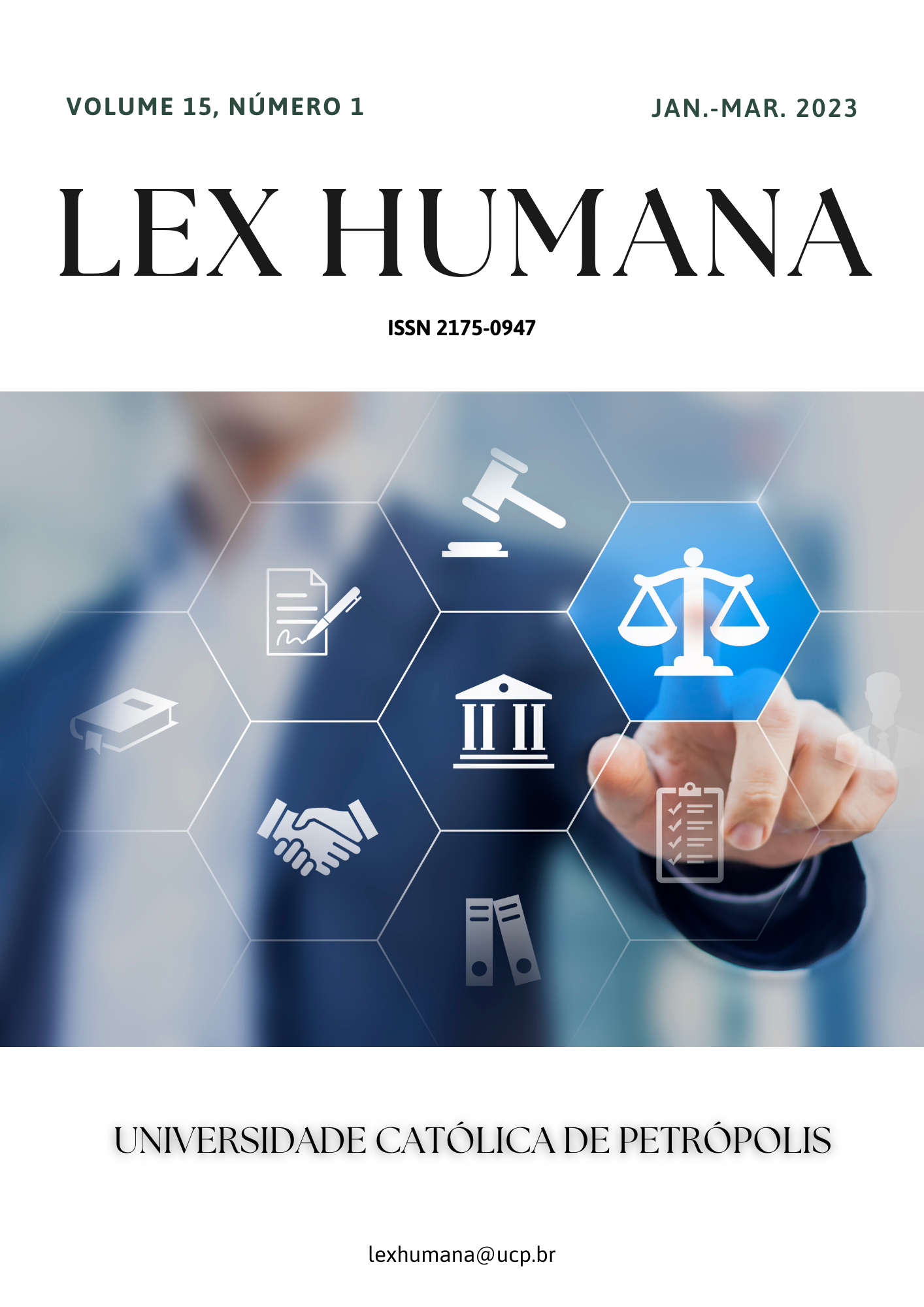Resumo
Atualmente, para além da existência da instituição do casamento no sentido tradicional, o mundo assiste à difusão do modelo de homens e mulheres, bem como de pessoas do mesmo sexo, que vivem juntos como uma família sem registo oficial do Estado do facto de terem criado uma tal família. A questão do casamento de facto está a tornar-se cada vez mais generalizada e socialmente importante na sociedade. Todos os anos, menos pessoas querem registar as suas relações familiares. Ao mesmo tempo, o legislador está a tentar desenvolver, melhorar e implementar mecanismos legais para proteger os interesses das pessoas nessas relações. No decurso do estudo, métodos sistémico-estruturais, comparativos, lógicos e linguísticos, análise, síntese, indução, dedução, abstração e idealização foram aplicados a materiais de estudo e processamento no campo da orientação reguladora do casamento de facto. Além disso, um inquérito por questionário serviu para esclarecer na prática certas questões nesta área. No decurso do estudo, foram delineadas as tendências mais importantes da literatura científica sobre a questão das relações matrimoniais de facto. Com base nos resultados de um questionário, o autor esclarece o ponto de vista dos advogados e estudiosos praticantes que estudam as relações conjugais sobre certos aspectos práticos desta questão.
Referências
Banerjee, D. & Rao, S.T.S. (2022). The Dark Shadow of Marital Rape: Need to Change the Narrative. Journal of Psychosexual Health, 4, 1. https://journals.sagepub.com/doi/10.1177/26318318221083709. https://doi.org/10.1177/26318318221083709.
Cheng, G. & Yan, Y. (2021). Sociodemographic, health-related, and social predictors of subjective well-being among Chinese oldest-old: a national community-based cohort study. BMC Geriatrics, 21, 124. https://bmcgeriatr.biomedcentral.com/articles/10.1186/s12877-021-02071-7. https://doi.org/10.1186/s12877-021-02071-7
DeRose, L.F., Johnson, B.R., Wang, W. & Salazar-Arango, A. (2021). Couple religiosity, male headship, intimate partner violence, and infidelity. Review of Religious Research, 63, 607–627. https://link.springer.com/article/10.1007/s13644-021-00461-2. https://doi.org/10.1007/s13644-021-00461-2
Dew, J.P., Trujillo, S. & Saxey, M. (2022). Predicting marital financial deception in a national sample: a person-centered approach. Family Relations 71, 1497–1514. https://onlinelibrary.wiley.com/doi/10.1111/fare.12654/ https://doi.org/10.1111/fare.12654
Dew, J.P., Saxey, M.T. & Mettmann, A. (2022). Money lies and extramarital ties: Predicting separate and joint occurrences of financial deception and extramarital infidelity. Frontiers in Psychology, 13. https://www.frontiersin.org/articles/10.3389/fpsyg.2022.1038169/full. https://doi.org/10.3389/fpsyg.2022.1038169
Isma, M.N.P. & Turnip, S.S. (2019). Personality traits and marital satisfaction in predicting couples’ attitudes toward infidelity. Journal of Relationships Research, 10, 1–5. https://www.cambridge.org/core/journals/journal-of-relationships-research/article/abs/personality-traits-and-marital-satisfaction-in-predicting-couples-attitudes-toward-infidelity/3BF1D60BCA503CA5A3C55A32FFA7DD2C/ https://doi.org/10.1017/jrr.2019.10
Jeanfreau, M.M., Holdon, C. & Brazeal, M. (2020). Our money, my secrets: why married individuals commit financial infidelity. Contemporary Family Therapy, 42, 46–54. https://link.springer.com/article/10.1007/s10591-019-09516-7. https://doi.org/10.1007/s10591-019-09516-7
Jeanfreau, M.M., Noguchi, K., Mong, M.M. & Stadthagen, H. (2018). Financial infidelity in couple relationships. Journal of Financial Therapy, 9, 1–20. https://newprairiepress.org/jft/vol9/iss1/2/. https://doi.org/10.4148/1944-9771.1159
Lin, L., Hang G., Duan, L., He, L., Wu, C., Lin, Z. & Sun, J. (2022). Research on the relationship between marital commitment, sacrifice behavior, and marital quality of military couples. Frontiers in Psychology, 13, 964167. https://www.ncbi.nlm.nih.gov/pmc/articles/PMC9577325/ https://doi.org/10.3389/fpsyg.2022.964167.
Namira, M., Isma, P. & Turnip, S.S. (2019). Personality Traits and Marital Satisfaction in Predicting Couples’ Attitudes Toward Infidelity.
Journal of Relationships, Research, 10, 2019. https://www.cambridge.org/core/journals/journal-of-relationships-research/article/abs/personality-traits-and-marital-satisfaction-in-predicting-couples-attitudes-toward-infidelity/3BF1D60BCA503CA5A3C55A32FFA7DD2C. https://doi.org/10.1017/jrr.2019.10
Nutz, T., Nelles, A. & Lersch, P.M. (2022). Who Opts Out? The Customisation of Marriage in the German Matrimonial Property Regime. European Journal of Population, 38, 353–375. https://link.springer.com/article/10.1007/s10680-022-09613-8
Paez, D., Delfino, G., Vargas-Salfate, S., Liu, J. H., De Zuniga, H. G. & Khan, S., et al. (2020). A longitudinal study of the effects of internet use on subjective well-being. Media Psychology. 23, 676–710. https://www.tandfonline.com/doi/abs/10.1080/15213269.2019.1624177?journalCode=hmep20. https://doi.org/10.1080/15213269.2019.1624177
Pan, H. & Liu, Q. (2021). Difference of depression between widowed and non-widowed older people in China: a network analysis approach. Journal of Affective Disorders, 280, 68–76. https://linkinghub.elsevier.com/retrieve/pii/S0165032720329888. https://doi.org/10.1016/j.jad.2020.11.058
Park, S.H. & Choi, Y.H. (2020). An exploratory case study on the social isolation of middle-aged males with a high risk of lonely death: focused on emergency welfare support recipients. Critical Sociology, 68, 45–78. https://www.dbpia.co.kr/journal/articleDetail?nodeId=NODE09807378&language=ko_KR&hasTopBanner=true. https://doi.org/10.47042/ACSW.2020.08.68.45
Perelli-Harris, B., Hoherz, S., Lappegard, T. & Evans, A. (2019). Mind the “happiness” gap: the relationship between cohabitation, marriage, and subjective well-being in the United Kingdom, Australia, Germany, and Norway. Demography, 56, 1219–1246. https://read.dukeupress.edu/demography/article/56/4/1219/168031/Mind-the-Happiness-Gap-The-Relationship-Between. https://doi.org/10.1007/s13524-019-00792-4
Rose, A.H., Anderson, S.R., Miller, R.B., Marks, L.D., Hatch, T.G. & Card, N.A. (2021). A dyadic exploration of marital satisfaction as a mediator between religiosity and depressive symptoms.
Marriage & Family Review, 57, 243–266. https://www.tandfonline.com/doi/full/10.1080/01494929.2020.1842842. https://doi.org/10.1080/01494929.2020.1842842
Saxey, M.T., LeBaron-Black, A.B., Dew, J.P. & Curran, M.A. (2022). Less than fully honest: financial deception in emerging adult romantic relationships. Emerging Adulthood, 10, 1529–1542. https://journals.sagepub.com/doi/pdf/10.1177/21676968221089190. https://doi.org/10.1177/2167696822108919
Van Tilburg, T.G. & Suanet, B. (2019). Unmarried older people: are they socially better off today? The Journals of Gerontology, 74, 1463–1473. https://academic.oup.com/psychsocgerontology/article/74/8/1463/5127115?login=false. https://doi.org/10.1093/geronb/gby120.
Ye, M.Z., DeMaris, A. & Longmore, M. A. (2018). Role of marital quality in explaining depressive symptoms after marital termination among older adults. Marriage & Family Review, 54, 34–49. https://doi.org/10.1080/01494929.2017.1284703 https://www.tandfonline.com/doi/abs/10.1080/01494929.2017.1284703?journalCode=wmfr20
Zhao, L., Zhang, K., Gao, Y., Jia, Z. & Han, S. (2022). The relationship between gender, marital status, and depression among Chinese middle-aged and older people: Mediation by subjective well-being and moderation by the degree of digitization. Frontiers in Psychology, 13. https://www.frontiersin.org/articles/10.3389/fpsyg.2022.923597/full. https://doi.org/10.3389/fpsyg.2022.923597

Este trabalho está licenciado sob uma licença Creative Commons Attribution-NonCommercial-NoDerivatives 4.0 International License.
Copyright (c) 2023 Lex Humana (ISSN 2175-0947)
